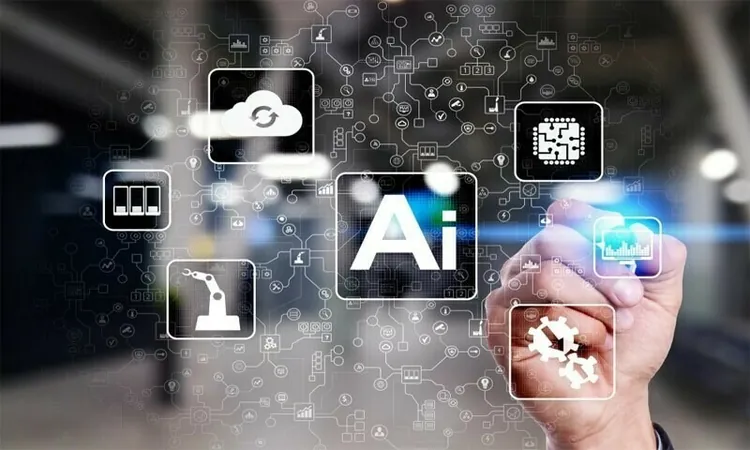
Your Breast Health Just Got Smarter: AI Revolutionizes Cancer Risk Detection!
2025-01-29
Author: Sarah
OSLO:
Exciting breakthrough news comes from the Norwegian Institute of Public Health (FHI), where researchers have harnessed the power of artificial intelligence (AI) to identify women at a heightened risk of breast cancer years before traditional diagnosis methods would catch it.
In a groundbreaking study, a team including experts from FHI and top-tier institutions like the University of California and the University of Washington used an advanced, commercially available AI program to analyze mammograms from an astounding 116,495 women who participated in a national screening initiative between 2004 and 2018. Within this group, 1,607 women went on to develop breast cancer, providing a substantial dataset for the researchers to work with.
The AI algorithm demonstrated its remarkable capability by predicting not just the likelihood of breast cancer development but also pinpointing the specific breast at risk. Researchers reported that the breast which eventually developed cancer had an AI risk score about twice as high as its counterpart, revealing a new level of precision in early detection. "The study indicates that AI can actively enhance personalized detection programs," stated Solveig Hofvind, the project leader overseeing this innovative endeavor.
This advancement is timely as the World Health Organization reported a staggering 670,000 breast cancer-related deaths in 2022 alone, marking it as the most prevalent form of cancer among women globally. The insight gained through AI promises not just better detection methods but also a means to effectively reduce healthcare costs and concentrate resources on those most at risk.
Additionally, FHI is not stopping here. They launched another ambitious initiative last year involving 140,000 women to assess whether AI can match or even surpass human radiologists in diagnosing breast cancer, a project that's already causing waves in the medical community.
This revolutionary use of AI in cancer detection heralds a new era for women's health, providing hope for early intervention and improved outcomes. With cutting-edge research published in the prestigious Journal of the American Medical Association Network, healthcare professionals are eager to see how these findings will transform breast cancer screenings in the near future.
Stay tuned—this could be the future of breast cancer detection! Are we on the brink of a game-changing medical revolution?
 Brasil (PT)
Brasil (PT)
 Canada (EN)
Canada (EN)
 Chile (ES)
Chile (ES)
 Česko (CS)
Česko (CS)
 대한민국 (KO)
대한민국 (KO)
 España (ES)
España (ES)
 France (FR)
France (FR)
 Hong Kong (EN)
Hong Kong (EN)
 Italia (IT)
Italia (IT)
 日本 (JA)
日本 (JA)
 Magyarország (HU)
Magyarország (HU)
 Norge (NO)
Norge (NO)
 Polska (PL)
Polska (PL)
 Schweiz (DE)
Schweiz (DE)
 Singapore (EN)
Singapore (EN)
 Sverige (SV)
Sverige (SV)
 Suomi (FI)
Suomi (FI)
 Türkiye (TR)
Türkiye (TR)